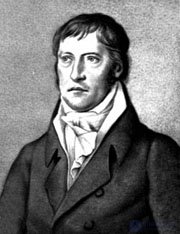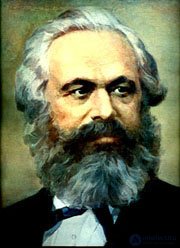Lecture
To make sure that everything said above about the three types of scientific logic is not unfounded, but quite reliable statements, let us turn to the analysis of the basic principles (fundamental laws) of each of these types.
Formal logic has four basic principles. Usually, its representatives formulate their principled positions narrowly - only for the sphere of thinking, because they fear that completely different fundamental laws prevail outside consciousness, but we will reject these fears and, in addition to the narrow ones, we will also give broad formulations of formal-logical principles, i.e. for any items, not just for thoughts. So it will be easier to compare the principles of formal logic with the dialectical principles, because the latter are always formulated widely.
Basic principles of formal logic
Principle Narrow wording Wide wording
1. The principle of identity Every thought is identical with itself Every object is only itself
2. The principle of non-contradiction. Two opposite judgments cannot be true at the same time and in the same relation. Any object at the same time and in the same relation cannot be itself and something else.
3. The principle of the excluded third Of the two contradictory judgments, one is true, the other is false, and the third is not given. Every object is either available or missing, and the third is not given.
4. The principle of a sufficient basis. The truth of a given thought can be fully justified by means of a finite set of other true thoughts. Every object has a finite number of connections with other objects.
The principal of the four formal logical principles is the principle of identity, the others represent its development. Formulations must be given precisely, since the fundamental laws cannot be expressed incompletely or vaguely. The result of a sloppy attitude to the principles of formal logic can be shown by example.
The principle of non-contradiction in its narrow formulation is sometimes truncated: "Two opposite judgments cannot be true." It turns out a lie, because formal logic does not think so at all. From her point of view, opposing judgments may well be true if expressed at different times or in different respects. For example, judgments about the same subject “This table is round” and “This table is not round” may turn out to be true, firstly, if the table was first round and then ceased to be such, for example, due to the fact that the covers broke off a piece, and secondly - if roundness is measured by different measures.
We now formulate the basic principles of classical (idealistic) dialectical logic.
Basic principles of dialectic logic
Principle Formulation
1. The principle of unity and struggle of opposites. Every object has its opposite in itself and struggles with it, pushing it away from itself.
2. The principle of the transition of quantity to quality. Two opposites as a result of the struggle with each other come to synthesis, on the basis of which a qualitatively new subject arises.
3. The principle of denial of negation Every object denies itself in its opposite (the first denial), and then denies its opposite in the synthesis with it.
When you get acquainted with the principles of dialectical logic, their philosophical, "tricky", non-obvious nature immediately catches the eye, while the principles of formal logic, at first glance, seem far from everyday philosophy of everyday truths, which, because of their obviousness, dispute That's just funny. In fact, both those and other principles are closely related to philosophy, because they all speak about the most general, philosophical aspects of rational (rational) knowledge of the world. As for the "obviousness" of formal-logical principles and the "non-obviousness" of dialectic, this distinction quickly disappears with a thoughtful analysis of both of them separately and in comparison with each other.
Studying the principles of dialectical logic, special attention should be paid to the concept of synthesis. Unlike the notions “thesis” (“initial position”) and “antithesis” (“opposite initial position”), which are general logical, that is, the notion “synthesis” is purely dialectical, used in any logic. It means the state of the free transition of opposites into each other, or, in short, the confluence of opposites. Formal logic considers such a merge impossible.
As a concrete example of the manifestation of dialectic principles, let us take the pattern of development of scientific logic, drawn in the previous lecture: scientific logic emerges as a formal (thesis), repels the dialectical (antithesis), and then, during the struggle of its opposite variants, comes to the synthesis - to materialistic dialectics .
According to this scheme, formal and dialectical logic are incompatible opposites. To be convinced of their incompatibility, it is enough to take the formal-logical principle of identity on the one hand and the dialectical principle of unity and struggle of opposites on the other. According to the principle of identity, every object is only itself, and according to the principle of unity and struggle of opposites, every object is twofold: it is he and not he, he and his opposite.
So, formal and dialectical logic exclude each other: either you use formal-logical principles or dialectical principles, and if you recognize one of the scientific logics we considered, you should not recognize the other. In the light of the above, it should be assessed as frivolous, as the appeals of some modern logicians who do not have any solid foundation to supplement the formal-logical approach in the process of scientific research with a dialectical approach and vice versa.
But still these appeals can not be called completely ridiculous. They reflect the awareness of one-sidedness, the inferiority of both classical formal and classical dialectical logic. However, much earlier than the modern logic I have mentioned — in the middle of the 19th century — K. Marx realized this inferiority. Moreover: he developed and brilliantly applied in his fundamental work called "Capital" a new, most perfect version of logic, eliminating the one-sidedness of the previous options, materialistic dialectics. So, instead of spending time on appeals to supplement formal research with dialectical ones, it is better for modern logic to take up the study of Marx.
The main principle of materialist dialectics, the principle of the unity of logic and history, says that the logic of the object of study is its history, cleared of accidents that prevent theoretical knowledge. This principle sharply distinguishes K. Marx's dialectic from the preceding versions of scientific logic.
Formal logic considers that logic and history are completely different things: the first is only in the head (consciousness) of the knowing subject, and the second is peculiar only to the object of research. In other words, we are offered to distract from the fact that logic must have a root in the history of specific objects in order to be an effective tool for their knowledge. At the same time, the connection between the theoretical (logical) world and the material world becomes incomprehensible.
Another thing is dialectical logic. History, its main representative argued the idealist philosopher G. V. F. Hegel, is the knowledge of oneself in absolute spirit, and logic is the result of this process. Here, logic and history appear as inseparably connected with each other, but their connection is so close that they are practically indistinguishable: in both cases we are dealing with absolute spirit, only it is served in different ways. In this mystical picture, logic and history merge into absolute identity.

G.V.F. Hegel,
largest representative
idealistic dialectical logic
In Hegel's philosophy, the process of knowledge, according to the apt expression of Karl Marx, stands on the head, that is, is presented idealistically, as a product of consciousness. In the materialist dialectics, he is put on his head: the cognizing subject is initially material, and his materiality determines all the features of his knowledge
The main principle of the materialist dialectic implies, in particular, the following: it is impossible to write a textbook on this logic. It's funny that there are such textbooks. They were written in Soviet times, when Karl Marx was idolized and in every way popularized his legacy. In content, these textbooks are a wild mix of formal and dialectical logic. It could not be otherwise. After all, what does writing a textbook on logic mean? This means to offer for the study of various subjects a single, universal system of logical rules. Using these rules, you need to squeeze the studied object into a pre-prepared logical frame, and what cannot be squeezed in should be discarded as insignificant for scientific knowledge. Such an attitude to the subject is nothing more than a theoretical violence against him, imposing ready logic on him.
The materialistic dialectic strongly objects to such violence. It requires to look for logic in the subject itself, more precisely, in its history, and since every object has its own, unique history, then every object must have its own logic, unique. That is why, in principle, it is impossible to write a textbook on materialist dialectics.

K. Marx,
creator of materialistic dialectical logic
But how to master it, if the textbook on it can not be found? And here there is no other way than to first study the formal logic with textbooks, then, having convinced of its one-sidedness, to study dialectical logic, and when you realize that both versions of scientific logic that you studied are defective, you yourself, without any textbooks, positions of materialistic dialectics. As for the pattern of application of the latter to the study of a particular subject, it is. This is the "Capital" of K. Marx.
Our course, although simply called "logic", is in fact a course of formal logic. And, studying this logic, we should not forget that it has application limits, beyond which it is necessary to use dialectical logic, and better - materialistic dialectics
Comments
To leave a comment
Logics
Terms: Logics